Latin America Update, December 2013
In 'Latin America Update' Gateway House lists some of the important events in Latin America over the past month
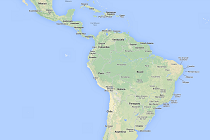 Courtesy: Google Maps
Courtesy: Google Maps
In 'Latin America Update' Gateway House lists some of the important events in Latin America over the past month
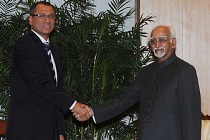 Courtesy: Ministry of External Affairs, India
Courtesy: Ministry of External Affairs, India
In 'India-Latin America Engagements', the Latin America Desk at Gateway House presents a selection of news of India’s engagement with the region during the previous month
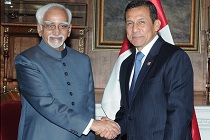 Courtesy: Ministry of External Affairs, India
Courtesy: Ministry of External Affairs, India
In 'India-Latin America Engagements', the Latin America Desk at Gateway House presents a selection of news of India’s engagement with the region during the previous month
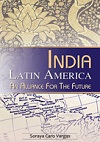 Courtesy: Vitasta Publishing Pvt. Ltd.
Courtesy: Vitasta Publishing Pvt. Ltd.
In ‘India-Latin America: An Alliance for the Future,’ Soraya Caro questions the mutually distorted perceptions between Indians and Latin Americans, and offers a new multi-dimensional lens for looking at bilateral ties
 Courtesy: generalising/Flickr
Courtesy: generalising/Flickr
The India-Japan alliance needs to be viewed through a prism broader than that of "containing" China, and by treating the Indian and Pacific oceans as a single entity. Such an alliance has the potential to strengthen the geopolitical security of India and Japan, along with that of all their allies and associates
 Courtesy: Berardo62/Flickr
Courtesy: Berardo62/Flickr
India’s oil imports from Latin America increased from 4.5% in 2003 to 11% in 2012-13. This marks a diversification in India’s energy policy. With Latin America’s surplus energy production and discoveries in off-shore oil fields, India must further consolidate its oil trade with the region
 Courtesy: Google Maps
Courtesy: Google Maps
In 'Latin America Update' Gateway House lists some of the important events in Latin America over the past month
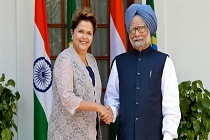 Courtesy: Roberto Stuckert Filho/Wikimedia Commons
Courtesy: Roberto Stuckert Filho/Wikimedia Commons
In 'India-Latin America Engagements', the Latin America Desk at Gateway House presents a selection of news of India’s engagement with the region during the previous month
 Courtesy: Ministério da Saúde/Flickr
Courtesy: Ministério da Saúde/Flickr
After revelations that the U.S.’s NSA spied on her, Brazilian President Dilma Rousseff has ordered a series of measures to ensure online independence and called for an equitable global internet infrastructure. India can follow Brazil’s lead and make its communication systems less vulnerable
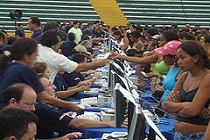 Courtesy: glaubercavalcante
Courtesy: glaubercavalcante
Like Brazil, many other countries in Latin America have implemented successful poverty-alleviation programmes, including cash transfers, as part of an overall strategy for reducing inequality. These programmes can be a model for other developing countries